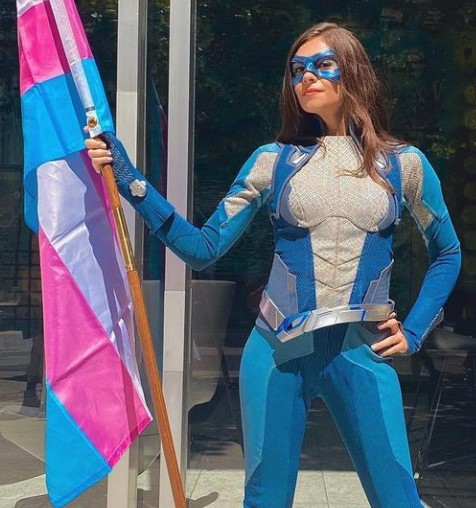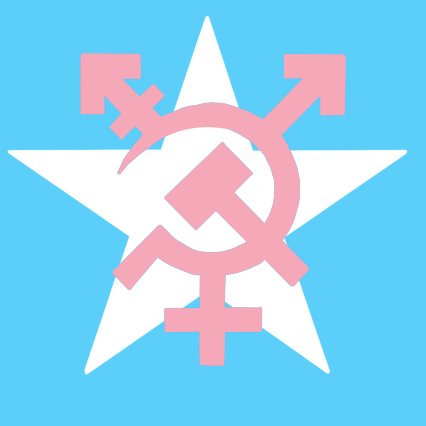Time for yet another essay on Transgender Marxism
This essay marks the halfway point!
The PDF is here - https://transreads.org/wp-content/uploads/2021/07/2021-07-15_60f0b3d5edcb7_jules-joanne-gleeson-transgender-marxism-1.pdf
The Intro Discussion with links to all previous essay discussions is here - https://lemmygrad.ml/post/395378
If you’re unsure what this post is: I’m leading a discussion group in real life on Intersectional Marxist Transfeminism, and I thought some of my comrades on the Internet may be interested in reading this essay collection as well.
This will be my initial read-through and note-taking. I hope to spark a discussion, or at least for us to learn something new together. So feel free to add comments and ask questions <3
Today’s essay is Queer Workerism Against Work: Strategising Transgender Labourers, Social Reproduction & Class Formation by Kate Doyle Griffiths.
Kate Doyle Griffiths is an anthropologist at City University of New York’s Graduate Center, a lecturer at Brooklyn College, and co-chair Red Bloom in New York City. Kate is an editor of Spectre. They are an ethnographer who writes about Southern Africa and the USA, workers, strikes, health and medicine, gender, Queers, race, class, Marxism and what is to be done.
Edit: the discussion continues with the next essay, by Farah Thompson, here - https://lemmygrad.ml/post/417377


“Concrete investigations of how queers navigate the everyday demands of exploitation must come to replace us serving as quaint representatives of the expansive tolerance, or emblems of social radicalism, of the left (contra wider society). The left is not only unusually ‘tolerant’ of queers and trans people: it also consists of us.”
“Queers have historically played an important role in politicising health care access as a question of class politics. Securing relevant treatment has required us to make political and organisational linkages between patients, providers, and researchers. Queer and trans people have rarely been able to expect humane and expert treatment as a given. Instead, we have secured it only through organising to advance research agendas, and test protocols. These are often formulated by working-class people through our lived experience, and autodidactic expertise.”
“queer and trans people represent an obstacle to the imagined negotiation with the ruling class for the adoption of this reform. (The same well may be true of disabled people or immigrants and other overlapping categories of people whose needs can be seen as particular or identity-based.) From this view, we appear as an extra expense, or a distracting ‘culture wars’ set piece that disrupts and divides simpler struggles.”
“well may be true” I guess Griffiths never bothered to talk to or read any disability activists
“Our struggle to secure social reproduction leads us to refuse to surrender ourselves to a one-size-fits-all profit-driven standard of what constitutes the bare minimum necessity for human survival.”
“Here, the lived experience of a small group of people recalls and exemplifies that original demand central to the socialist or communist vision – that ‘to each according to [her] need’ entails a recognition of different individual and particular needs”
This is true, but also I find it a little odd to like, change the quote to “her” rather than “his”, especially in the context of a discussion on trans liberation where, while trans women face the brunt of the violence, trans men face the brunt of the erasure.
If using a literal quote wasn’t right (for some reason) I would think changing it to the gender-neutral “their” would make more sense.
I’m mostly just going to pull a few quotes for the rest (of things that I do think are important to read) because I feel like I really don’t care for Griffiths’ writing, and I’ve been quite critical despite the fact that there is something buried in here worth learning.
“We make plain the absurdity of, for example, Jordan Petersen’s [sic] lobster-based naturalistic fallacy”
“Our lives and experiences insert indeterminacy and uncertainty, both in the sense of compelling feminism to reckon with the possibility of actually existing non-binary forms of gender, made liveable through a combination of self-assertion and community recognition. But also by revealing that even binary genders are changeable across time, and an individual lifespan.”
“While there is not one single experience – and many individuals may experience some, none, or all of these features – queers collectively represent a concentrated group that tend to be alienated. Which is to say we are dispossessed not only as all proletarians are by definition, but also from the social means of reproduction and redistribution, which is to say from the family.”
"In historical accounts, like Chauncey’s Gay New York, or Feinberg’s historical novel Stone Butch Blues, we see how the rise of industrial urban environments attracted queer people to large cities. These migrating queers often found work in ports and warehouses, and as sex workers serving both working-class and wealthy urban clients. This work was taken up in part because these roles accommodated those whose presentations violated the gender norms of polite society. And because this work assumed or tolerated a certain laxity with respect to legal niceties."
“Gentrification and the financialisation of real-estate in most urban centres worldwide has now dispersed communities of dock and warehouse workers, remodelling what were once accommodations for transient sailors, and ‘cleaned up’ red light and gay districts.”